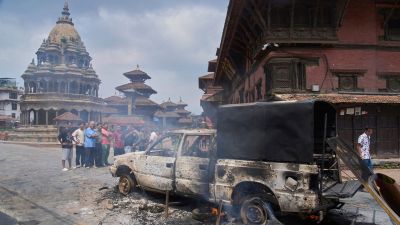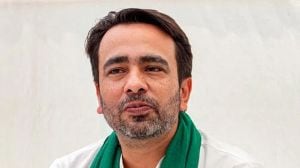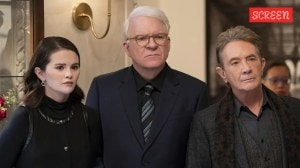US fails to find ‘paper trail’ of terrorist plots
For more than seven months, US authorities are probing the Sept. 11 attacks. Scouring everything from caves to credit cards in the hope they...

For more than seven months, US authorities are probing the Sept. 11 attacks. Scouring everything from caves to credit cards in the hope they would ultimately discover how the 19 hijackers plotted their brazen scheme. But the global search has produced virtually nothing in the way of hard evidence about the terrorists’ planning, and authorities said on Monday that they now face the growing realisation that they may never know many key details.
|
Head of Congressional Sept 11 probe quits
|
|
WASHINGTON: The head of a joint congressional investigation into why US intelligence agencies failed to detect the plot that led to the Sept. 11 attacks on America has resigned, Government sources said on Monday. Britt Snider, a retired CIA inspector general, was hired in February to conduct the review for the Senate and House intelligence committees. Some members of the panels had objected to his selection, saying Snider was too closely tied to the spy agency and CIA Director George Tenet to conduct an impartial review. Snider resigned on Friday and his deputy Rick Cinquegrana will fill in as the acting head of the investigation, sources said. (Reuters) |
The sobering conclusion underscores the skill and sophistication of the Al Qaeda terror network in its ability to conceal its activities — and the equally daunting difficulties that authorities face in heading off another attack, officials said. The hijackers ‘‘left no paper trail,’’ FBI Director Robert S. Mueller said in the text of a speech the FBI released on Monday.
Mueller revealed that investigators believe the Sept. 11 plan may have been in the works for as long as five years, and that the hijackers used ‘‘meticulous planning, extraordinary secrecy and extensive knowledge of how America works’’ to conceal their scheme after entering the US legally from West Asia.
Investigators have found no computers, laptops, hard drives or other storage media that may have been used by the hijackers, who hid their communications by using hundreds of different pay phones and cellphones, coupled with hard-to-trace prepaid calling cards. In executing wire transfers to fund the attacks, they were also careful to send money in small amounts, avoiding large cash transactions that would have triggered a government report, Mueller said, adding: ‘‘The hijackers did all they could to stay below our radar.’’
The FBI and other US intelligence agencies have come under intense scrutiny since the terror attacks and some analysts suggested that Mueller’s comments, made in a speech to the Commonwealth Club in San Francisco on April 19, may reflect an attempt to rationalise the intelligence community’s failure to pick up on any signs that an attack was imminent.
In hindsight, several episodes could conceivably have alerted authorities to a possible plot, including indicted Al Qaeda member Zacarias Moussaoui’s suspicious activities at a Minnesota flight school and the entry of two of the hijackers into the country even though they were on a CIA terrorist ‘‘watch list.’’
But even now, law enforcement officials say that while they have been able to reconstruct the movements of the hijackers in the months before the attacks — all legal except for a few speeding tickets — they have found no evidence of their actual plotting.
Indeed, the White House is deeply concerned about the lack of any evidence that could have foreshadowed the events of Sept. 11, and that is one reason why US counter-terrorism authorities intend to keep the nation on an indefinite state of heightened alert, according to a Bush administration official who asked not to be identified.
(LATWP)
Photos



- 01
- 02
- 03
- 04
- 05



























